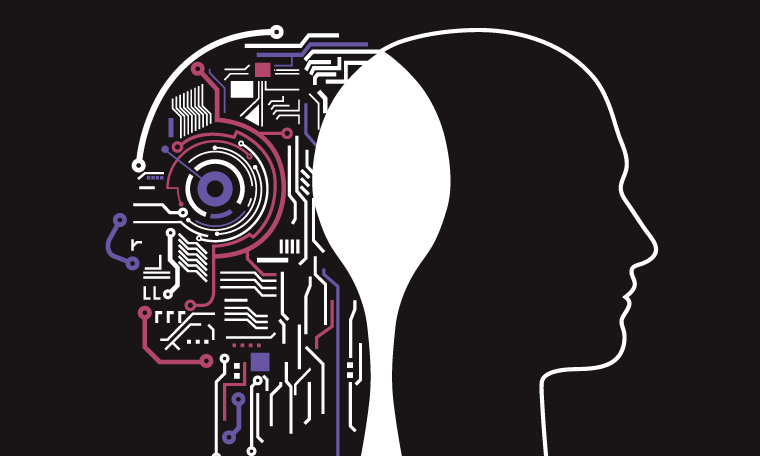In 2017, Slice, a New York tech company that builds software solutions for independent pizzerias, had a management problem.
The company’s tech staff is based in Macedonia, where high unemployment rates mean most of their new hires have never held a formal job prior to Slice. “We have a lot of first-time managers who need coaching,” said Rick Pereira, chief people officer.
Instead of moving to Macedonia himself, Pereira implemented Butterfly.ai, an artificial intelligence coaching app that provides feedback to managers on their leadership skills. The tools uses anonymous employee survey results and past performance data to rate managers’ performance, then offers tips and training content to help them improve.
Pereira, who is able to review all of the feedback, said it has helped many of his team members become better managers, including their senior manager who initially had a gruff communication style. “People loved what he was saying but not how he said it,” Pereira said. Based on consistent feedback about the senior manager’s rough approach, the Butterfly coach recommended a series of communication courses and articles. “Now he’s one of our strongest leaders,” Pereira said.
Butterfly.ai, along with VoiceVibes, Orai and GiantOtter, are among a host of new AI-driven coaching apps that promise to change the way companies provide mentoring and suggest training to improve soft skills. These apps analyze employee survey data, listen to voice cues and evaluate historic performance reports to identify the unique coaching needs of individual users, as well as offer advice and suggest training to address their shortcomings.
Hello, HAL
“We are at the dawn of the robot coach,” said Holger Mueller, vice president and principal analyst for Constellation Research covering next generation research. Virtual coaches may sound futuristic, but as artificial intelligence technology matures, AI-driven coaching applications are becoming increasingly possible. “It’s still early, but the technology exists and there are a number of startups making progress,” Mueller said.
Siri, Alexa and other humanoid versions of AI tools already coach us in our personal lives, providing driving directions, suggesting music and finding recipes online. It was only a matter of time before they infiltrated the workplace. And the workplace seems eager to welcome them. Accenture’s 2018 Future Workforce report found 72 percent of CEOs believe intelligence technologies will be critical to their organization’s market differentiation and 61 percent think the share of roles requiring collaboration with AI will rise in the next three years.
While the report doesn’t specifically mention AI for coaching, the implication is that employees will increasingly be expected to interact with AI bots in their jobs. In companies with thousands of workers, or where employees work remotely, using these tools for performance feedback can provide additional support in between face-to-face coaching opportunities. This may be especially appealing for millennials, who are often noted for wanting constant feedback on their performance.
“It can be difficult and expensive to scale the level of mentoring needed to guide every manager,” said David Mendlewicz, CEO of Butterfly.ai. He pointed out that the tools are not meant to replace human coaches all together. Rather, it’s a way to provide more frequent and targeted feedback to managers who might otherwise never get that kind of advice.
For example, Slice’s Pereira said that the survey feedback Butterfly captured on his senior manager consistently pointed to a need for more communication training, but without the app he likely never would have known there was an issue. “It helped us address the issue before it became a problem,” he said.
While the tools are not totally autonomous yet, their developers are using increasingly sophisticated strategies to assess users’ performance and in some cases they are able to track elements that a human can’t. Orai, for example, is a public speaking coach that listens to users as they make speeches and counts the number of filler words and pauses they use, along with tracking their speed, tone and energy level. Then it gives the user a report, complete with data on these metrics as well as advice on how to improve.
“That kind of data is hard to capture, especially for soft skills training,” said Diane Burgess-Faber, vice president of solutions designs for Mandel Communications, a communications skills training company that recently partnered with Orai to integrate the app into its public speaking coaching program.
The Ethics of Coaching Bots
So, can these tools ever really replace a human coach? Not exactly, according to Rob High, chief technology officer for IBM Watson, IBM’s groundbreaking cognitive computing system that uses AI and algorithms to answer natural language questions. “Artificial intelligence could be used in an advisory process, but on its own it can’t generate advice,” he pointed out.
In other words, a computer can’t come up with ideas on its own; it can only provide feedback based on what it has been taught to do. The challenge is teaching the technology what the right behavior looks like and how to coach people to improve their results, High said.
In transactional scenarios, such as answering call center questions or providing simple directions, teaching an AI bot what to look for is fairly straightforward. “You take the most common questions people ask or problems they encounter and train the system to respond,” High said.
But teaching a computer how to recognize, assess and provide feedback on soft skills is far more complicated. Developers need to expose the system to thousands of examples and teach it what exemplifies good and bad behavior and why. Next, they have to give it clear models against which to judge users’ performance and guidelines for suggesting the right learning programs to address this behavior.
There is a level of subtlety there that is hard to achieve, said David William Shaffer, professor of learning science at the University of Wisconsin-Madison and a game scientist at the Wisconsin Center for Education Research. “It’s difficult for a computer to have enough information about the world to know what a person needs to do or should do in a certain scenario,” he said.
Making matters more complicated, the rules for soft skills are not set in stone. Every individual has different leadership or communication styles, and the strategies they use may differ based on the situation. They also have varying preferences for how to learn. Where one manager may prefer to read an article, the other may prefer a video or an interactive online course. The bots need to be able to learn about each user so they can recommend the right content or advice.
That’s not to say it can’t be done — it just takes time and data. Orai’s developers tackled this demand initially by showing its app thousands of TED Talks and defining the spectrum of good to bad based on number of views. The app’s knowledge continues to evolve as more users record their speeches, and it is able to track how they improve over time based on the feedback they receive.
Orai co-founder Danish Dhamani admits that the current technology has its shortcomings, however. For one thing, it can’t yet mix and match metrics when giving feedback. A speaker may use a lot of filler words, for example, but the speech may still have a great impact due to the speaker’s energy and clarity. “The system can’t look at the whole picture that way,” Dhamani said. It also can’t judge the quality of content in the speech or any physical performance attributes, including eye contact or body language.
Dhamani sees these as temporary roadblocks that will be tackled in future versions of Orai as the technology evolves. His team is currently teaching the app how to assess English spoken with foreign accents, and they have plans to add additional languages next year. They are also working on assessing basic attributes of a good speech, including whether the speaker starts with a strong hook to engage the audience and ends with a powerful message. “We are excited about where we can take it in the future,” Dhamani said.
None of these tools are perfect, but they provide a promising opportunity to give employees more customized support when a human coach isn’t available.
These Apps Have a Big Future
AI coaching apps may still be a novelty, but that’s likely to change as the smaller startups prove themselves to customers, investors and the companies that may one day acquire them. Several of the startups in this space, including Butterfly, VoiceOps and VoiceVibes, have landed lucrative venture capital deals, and many of the larger HR and learning management companies are paying close attention to this trend.
Gretchen Alarcon, group vice president of the HCM product line for Oracle, said many Oracle clients are looking for new ways to use AI for human resources, including coaching, employee engagement and providing automated training suggestions. “The idea that natural language processing could guide engagement or performance is interesting,” she said. Particularly if it can be customized to individual managers. Oracle already offers automated chat bots to answer HR questions and to guide candidates through the application process. “I can imagine a future where AI technology reaches a point where it could answer more complex questions and help people improve their skills.”
IBM’s High is also optimistic about the future of AI for more sophisticated coaching applications. He envisions a future where pure AI or a combination of AI and human interaction could provide more consistent and frequent advice and training on a variety of social and emotional skills. “It’s very conceivable,” he said.
But regardless of how much the technology evolves or how thoughtfully it can provide feedback and suggest training and compliment results, it should never be considered a replacement for human coaches. “We deliberately recommend against anyone introducing conversation agents that try to masquerade as human,” High said.
He applauded the fact that Alexa, Google Home and other popular AI personalities are intentionally designed to be not quite human and said he hopes that future developers of these tools follow their lead. “It is an ethical boundary you should not cross,” he said.
Most of the developers of these tools appear to agree. “No computer can replace human mentors, but it can support them,” said Butterfly’s Mendlewicz. As demand increases for smaller and more frequent opportunities to learn and receive feedback, these AI tools could fill an increasingly important role in the corporate learning landscape.
Sarah Fister Gale is a writer based in Chicago. To comment, email editor@CLOmedia.com.















